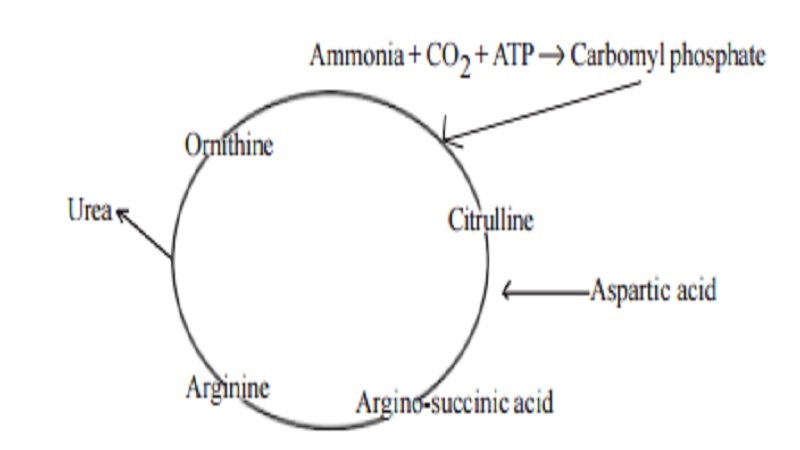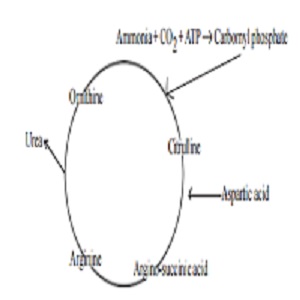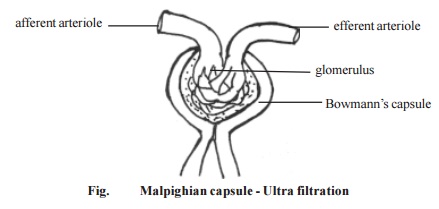Chapter: 11th 12th standard bio zoology Human Body higher secondary school
Human Excretion

Human Excretion
As a result of continuous synthesis and breakdown of materials many waste products are formed in cells. The process by which the cellular nitrogenous wastes are eliminated is called excretion. Three main nitrogenous wastes are ammonia, urea and uricacid. Various vertebrates excrete different form of nitrogenous wastes, according to the nature of their habitat and availability of water.
Ureotelism
Ureotelism is an adaptation for a semi-terrestrial habitat. Urea requires only a small quantity of water to form urine and never involves much water loss; Further, urea is much less toxic than ammonia and it can be retained in blood for sometime before it is transported and eliminated through the excretory organs. Though the concentration of urea in the blood is small, it can be stored safely in the bladder in high concentration. Thus ureotelism is conditioned by the shortage of water, characteristic of the terrestrial habitat.
Urea Biosynthesis (Ornithine Cycle)
Ammonia + CO2 + ATP - Carbomyl phosphate
Liver is the principal organ of urea biosynthesis. In the ornithine cycle, ammonia, formed by deamination in cells and tissues, combines with carbon dioxide to form carbamyl phosphate. This compound is subjected to a cyclic chemical reactions as provided in the figure. Three molecules of ATP are spent to convert the toxic ammonia into a molecule of urea.

Nephron
Nephron is the structural and functional unit of the kidney. There are about a million nephrons
In general, the kidney performs the following vital functions in the body :
1.Excretion of waste products resulting from protein metabolism.
2. Regulation of acid-base balance by excretion of H+ ions (acidification) and bicarbonate ions.
3.Regulation of salt-water balance by hormones secreted both intra-and extra-renally.
Formation of renin and erythropoietin and thereby playing a role in the regulation of blood pressure and erythropoises respectively.
Mechanism of urine formation
Urine is continually formed by each nephron and the processes involved in the formation of urine are
1. Glomerular ultra filtration, 2. Tubular Reabsorption, 3. Tubular Secretion
Glomerular ultra filtration

Ultrafiltration of blood takes place in the malpighian body which acts as a biological filter. A malpighian body comprises Bowmann's capsule and glomeruli.
Dynamics of filtration
The kidneys normally receive an abundant blood supply of about 1200ml/min or about 20 to 25 percent of the cardiac output. It flows through the capillaries of glomerulus where the blood pressure is comparatively high. The high blood pressure brings about effective filtration. The hydrostatic pressure (forward pressure 75mm/Hg.) of the blood in the afferent glomerular capillaries and the cumulative effect of the opposition pressures and renal intratubular pressure (10mm/Hg.) play an important role in producing the glomerular filtrate. The hydrostatic pressure of the blood is always greater than the opposing pressures existing in the plasma protein and renal capillaries. Thus the available net filtering force (75-50mm/Hg. = 25mm/Hg.) is chiefly responsible for glomerular filtration. The fluid in the capsule which is obtained by the process is termed glomerular filtrate. The volume of the glomerular filtrate produced each minute is called glomerular filtration rate (GFR). In man it is about 125ml/min. In 24 hours the total volume of glomerular filtrate is 170 to 180 liters.
Related Topics